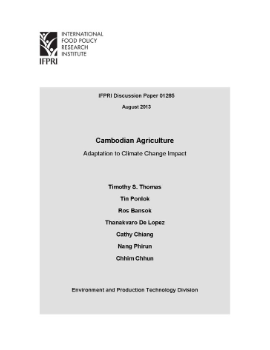
Cambodian Agriculture: Adaptation to Climate Change Impact
Cambodia has been identified as one of the most vulnerable countries to climate change, given the predicted changes in temperature and precipitation, the share of labor in agriculture, and the country’s low adaptive capacity due to widespread poverty. In this study, we use climate data from four general circulation models (GCMs) to evaluate the imp...
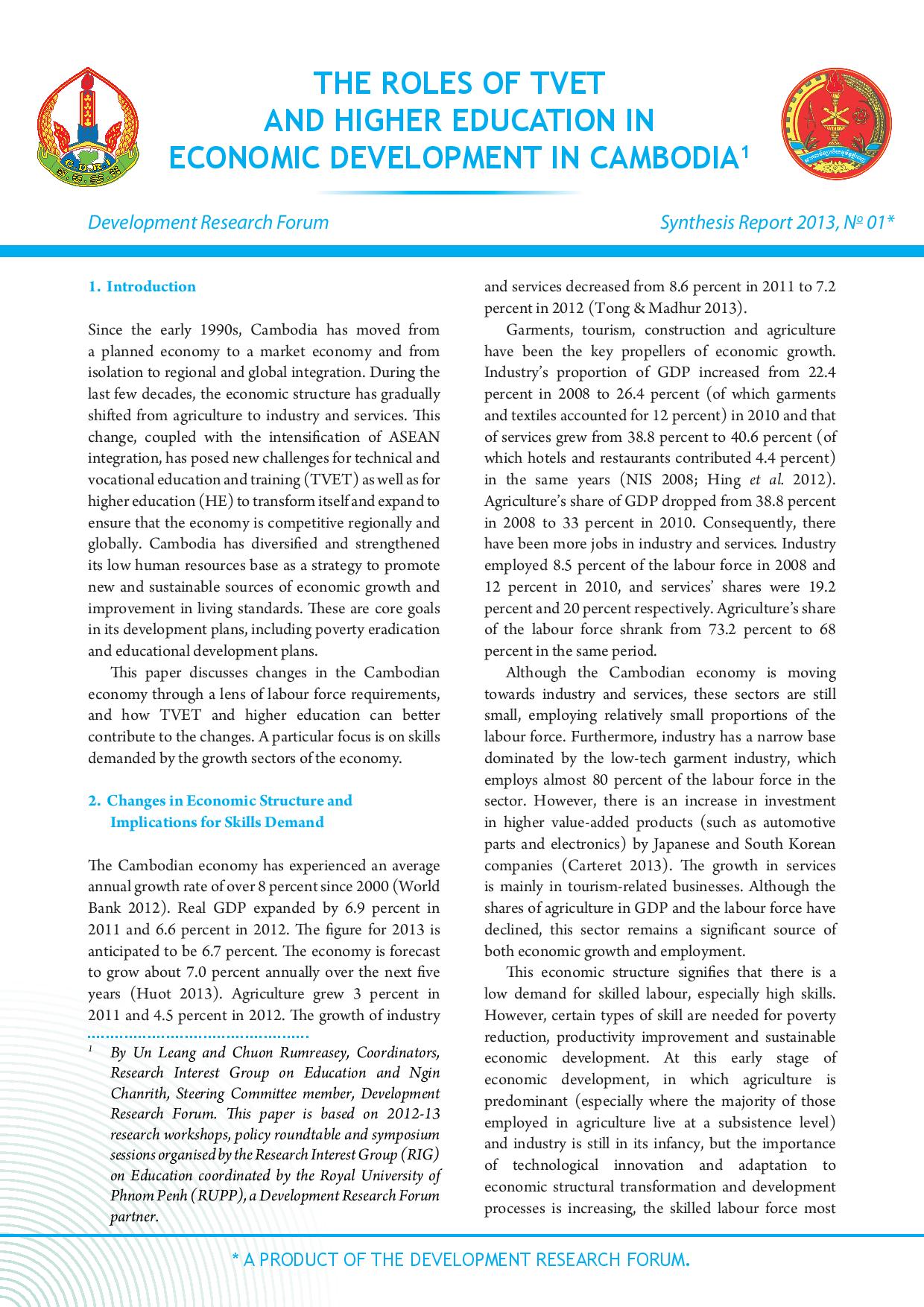
The Roles of TVET and Higher Education in Economic Development in Cambodia
During the last decades, Cambodia’s economic structure has gradually shifted from agriculture to industry and services. This change, coupled with deepened ASEAN integration, has posed new challenges for transforming and technical and vocational education and training (TVET) and higher education to ensure that the economy is competitive regionally a...
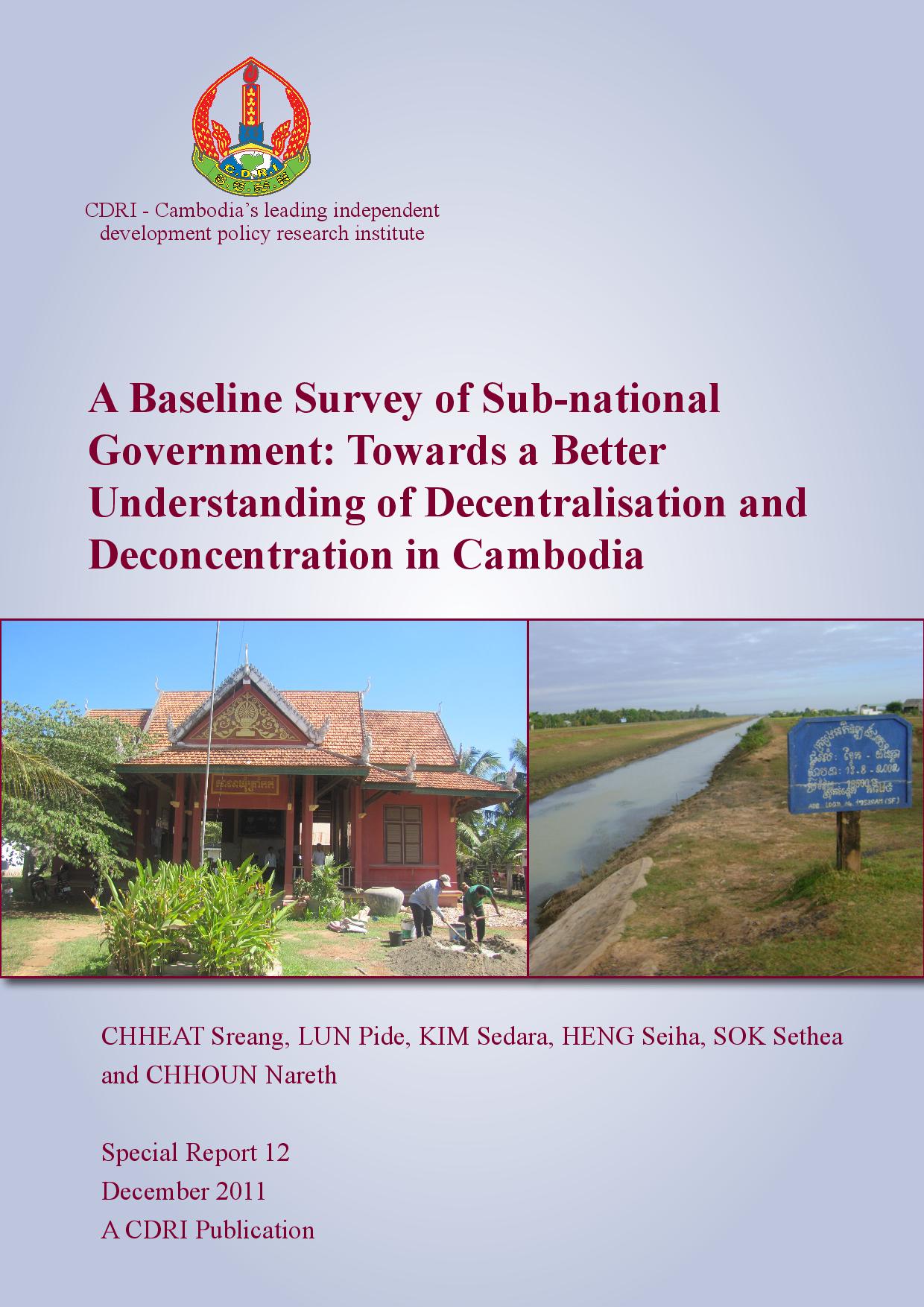
A Baseline Survey of Subnational Governments: Towards a Better Understanding of Decentralisation and Deconcentration in Cambodia
The district and provincial council elections in May 2009, for the first time, offered communes the opportunity to choose councillors from whom they can demand accountability, and introduced a new relationship between commune councillors and higher councils. The main goal of this survey is to gauge the view of commune and district councillors and d...
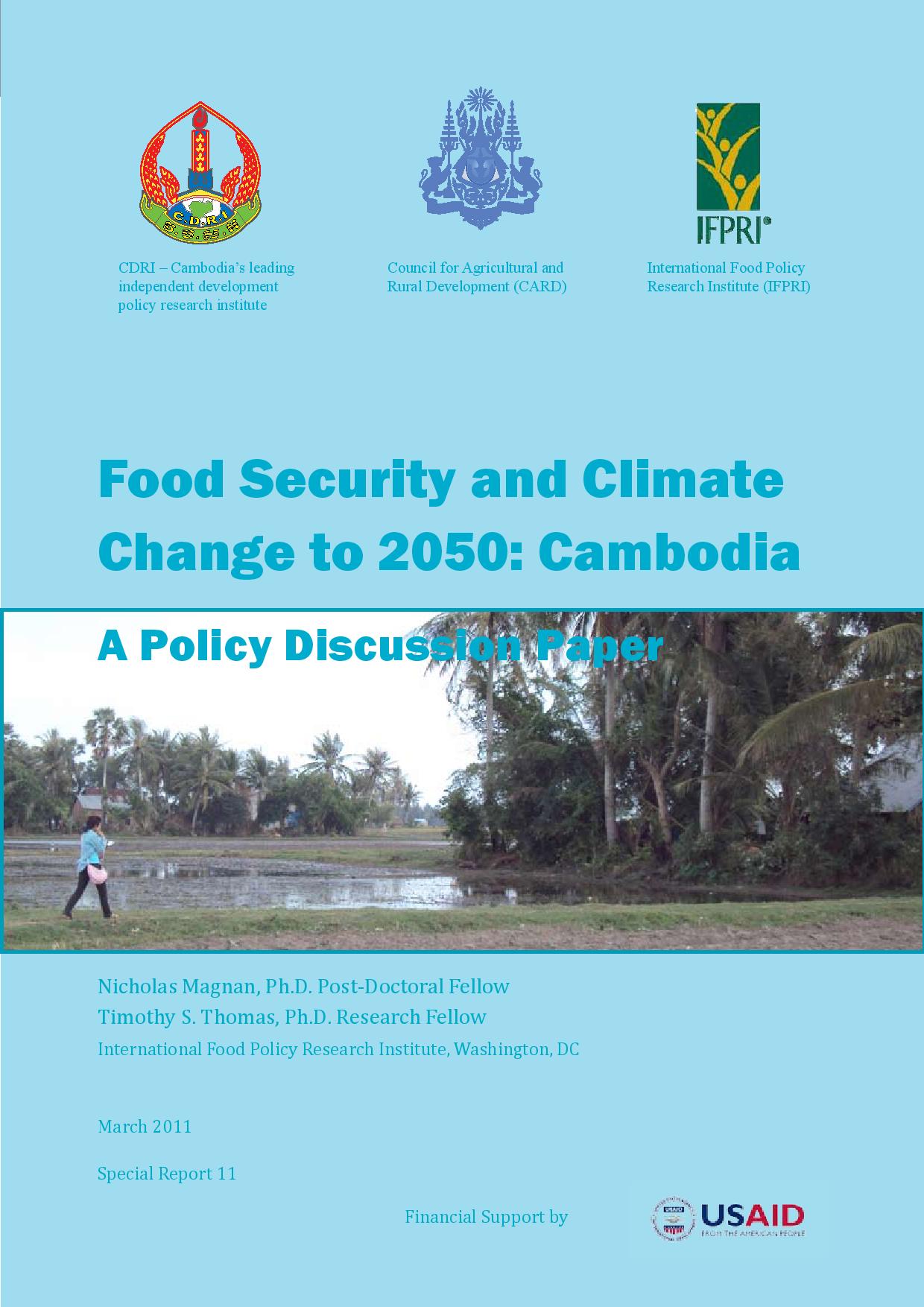
Food Security and Climate Change to 2050: Cambodia
In Cambodia, two thirds of the population are economically dependent on agriculture and most farmers are poorly equipped to adapt to climate change. Because of international linkages through trade and prices, any complete analysis of the potential domestic effects of climate change must consider impacts on a global scale. This paper highlights a se...
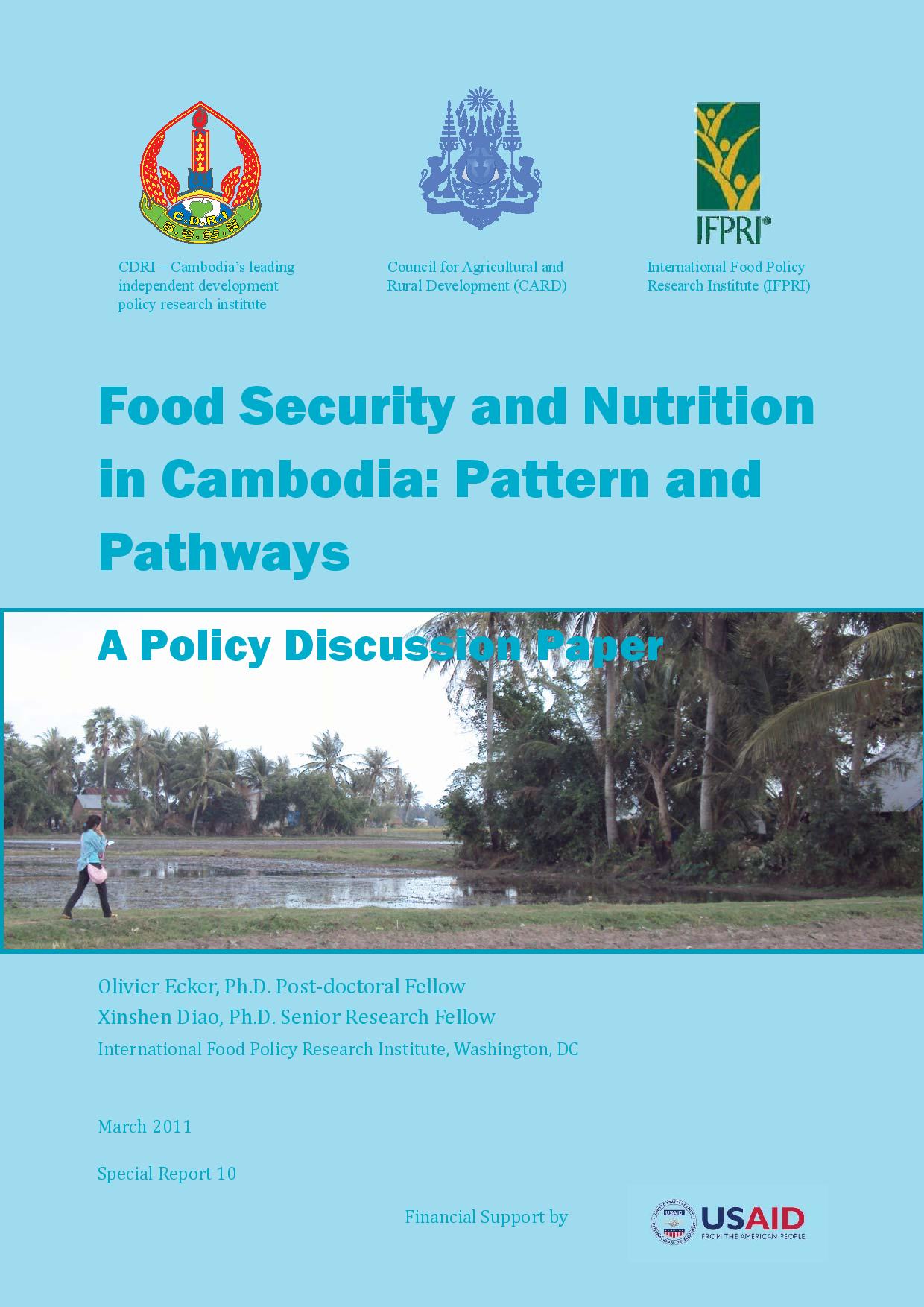
Food Security and Nutrition in Cambodia: Patterns and Pathways
Through comparison with other countries in Asia, this paper analyses the patterns of hunger and malnutrition in Cambodia and possible pathways to ensure the country’s future food security. In the face of increased inequality and high population growth, Cambodia has managed to make considerable progress in reducing hunger and malnutrition especially...
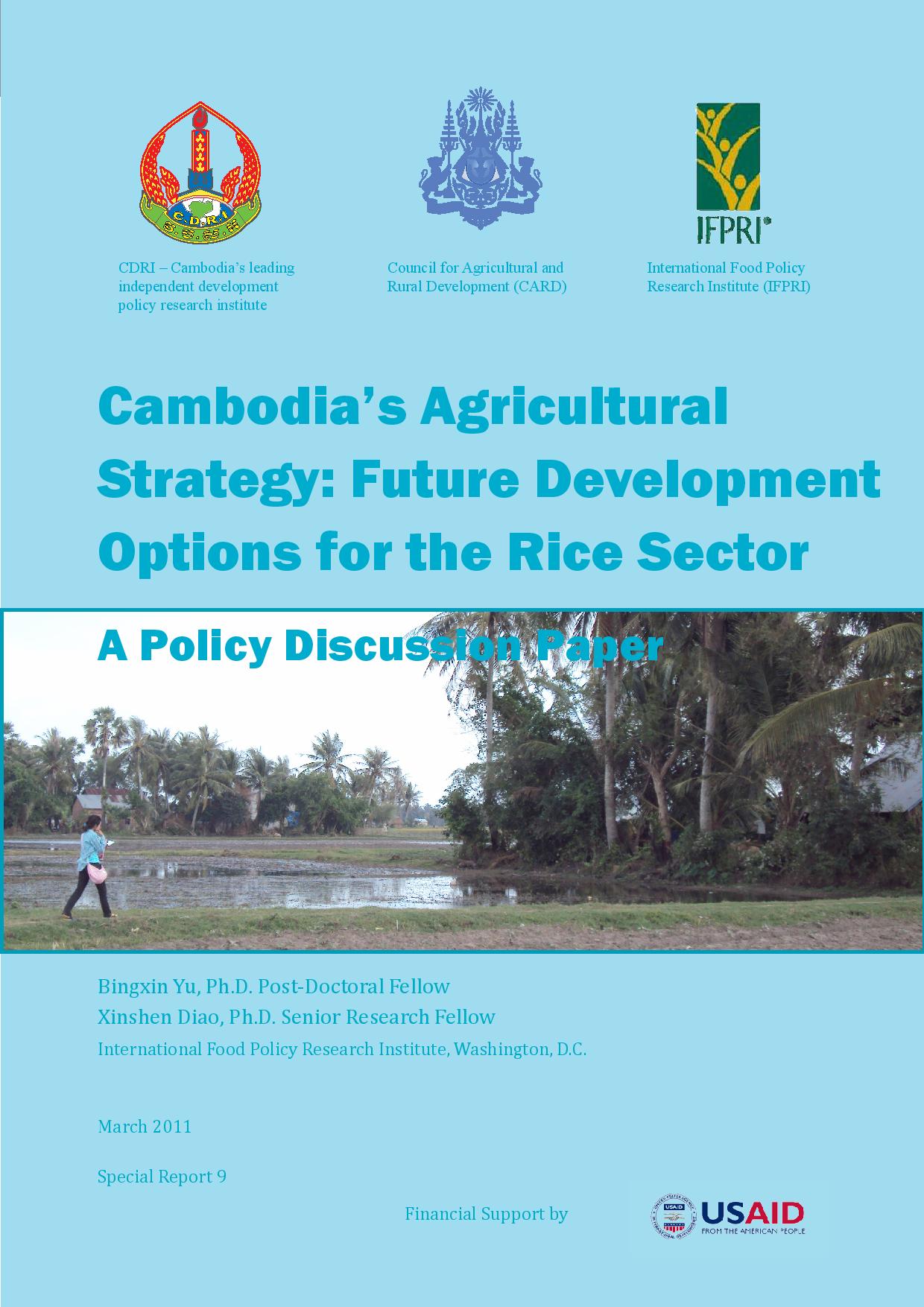
Cambodia’s Agricultural Strategy: Future Development Options for the Rice Sector
This paper first reviews the performance of the rice sector and rice-related government policies and interventions and then explores a possible development path for rice by comparing the current situation in Cambodia with the early development stages of Thailand and Vietnam. With strong government support, rice production has grown rapidly since 20...
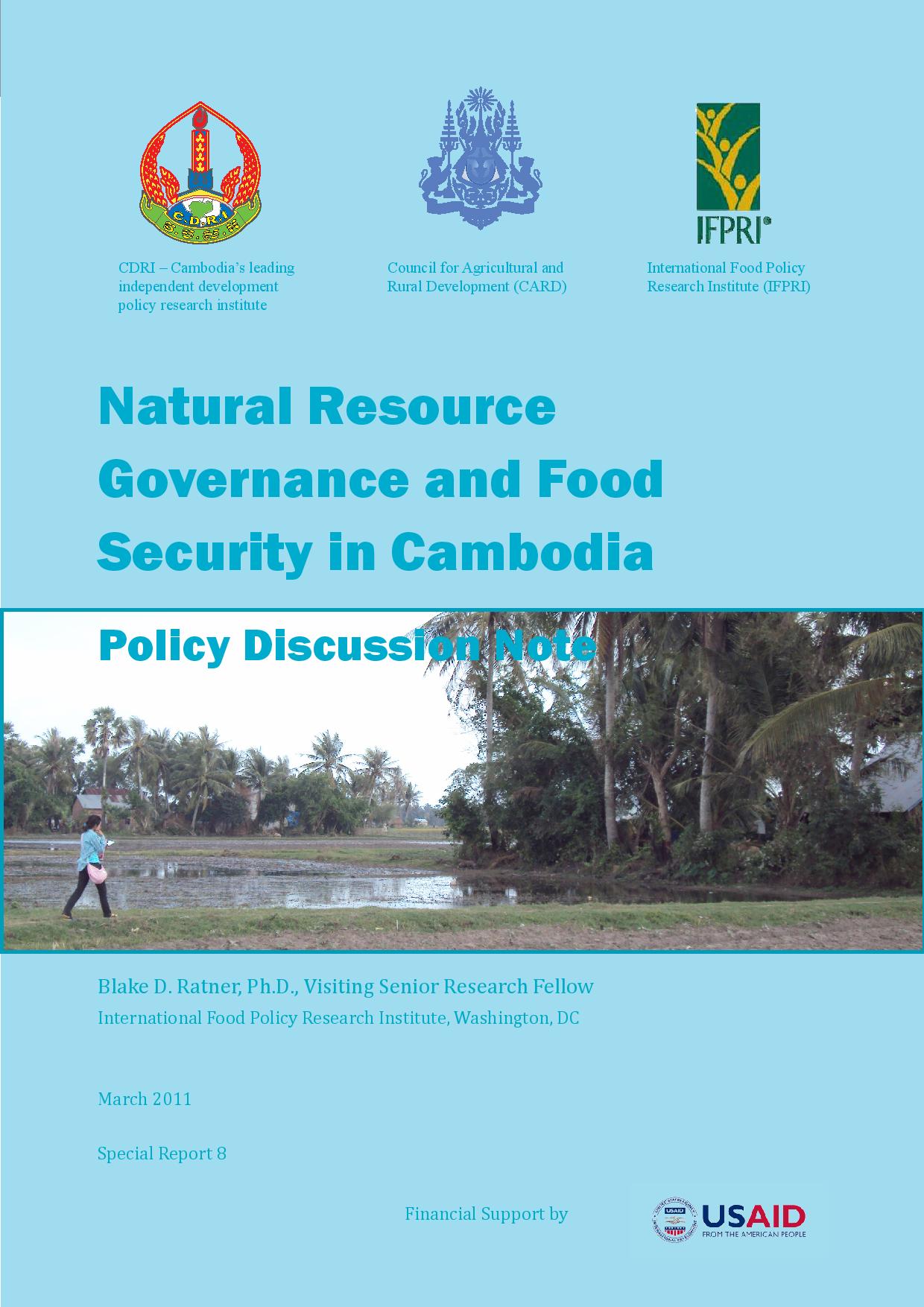
Natural Resource Governance and Food Security in Cambodia
Cambodia experienced a decade of rapid economic growth until 2007, but that growth depended significantly on exploiting its natural resource base and was marked by an unusually rapid rise in inequality. While investments in health, education, rural infrastructure and microcredit are essential to improving the asset portfolio of vulnerable househol...
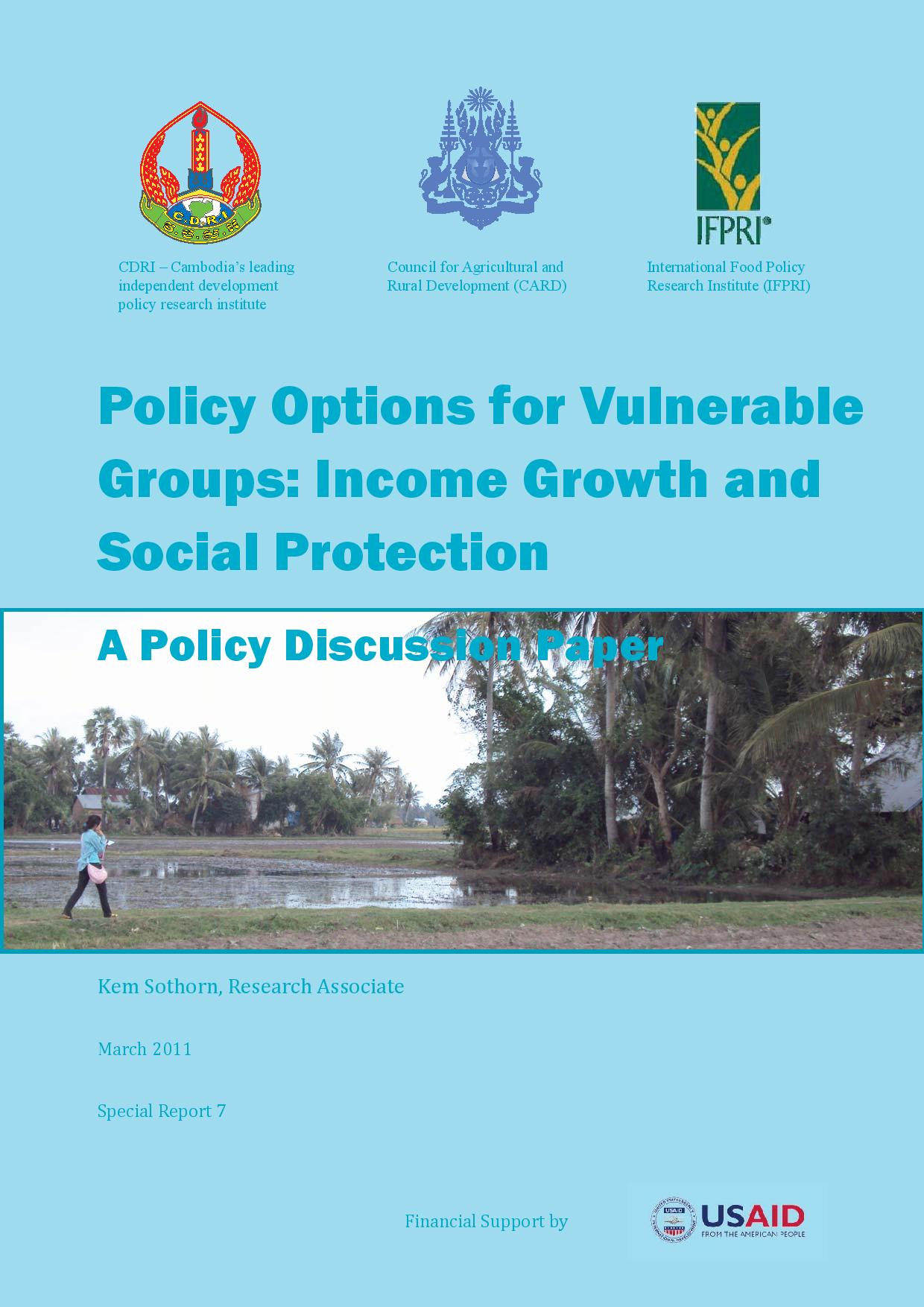
Policy Options for Vulnerable Groups: Income Growth and Social Protection
Two decades of civil war caused extensive damage to Cambodia’s physical, social and human capital and left the populace, especially rural people, in a state of chronic poverty and vulnerability. Despite pro-poor targeting and massive efforts by the government and its development partners, a large proportion of the population in need of support does...
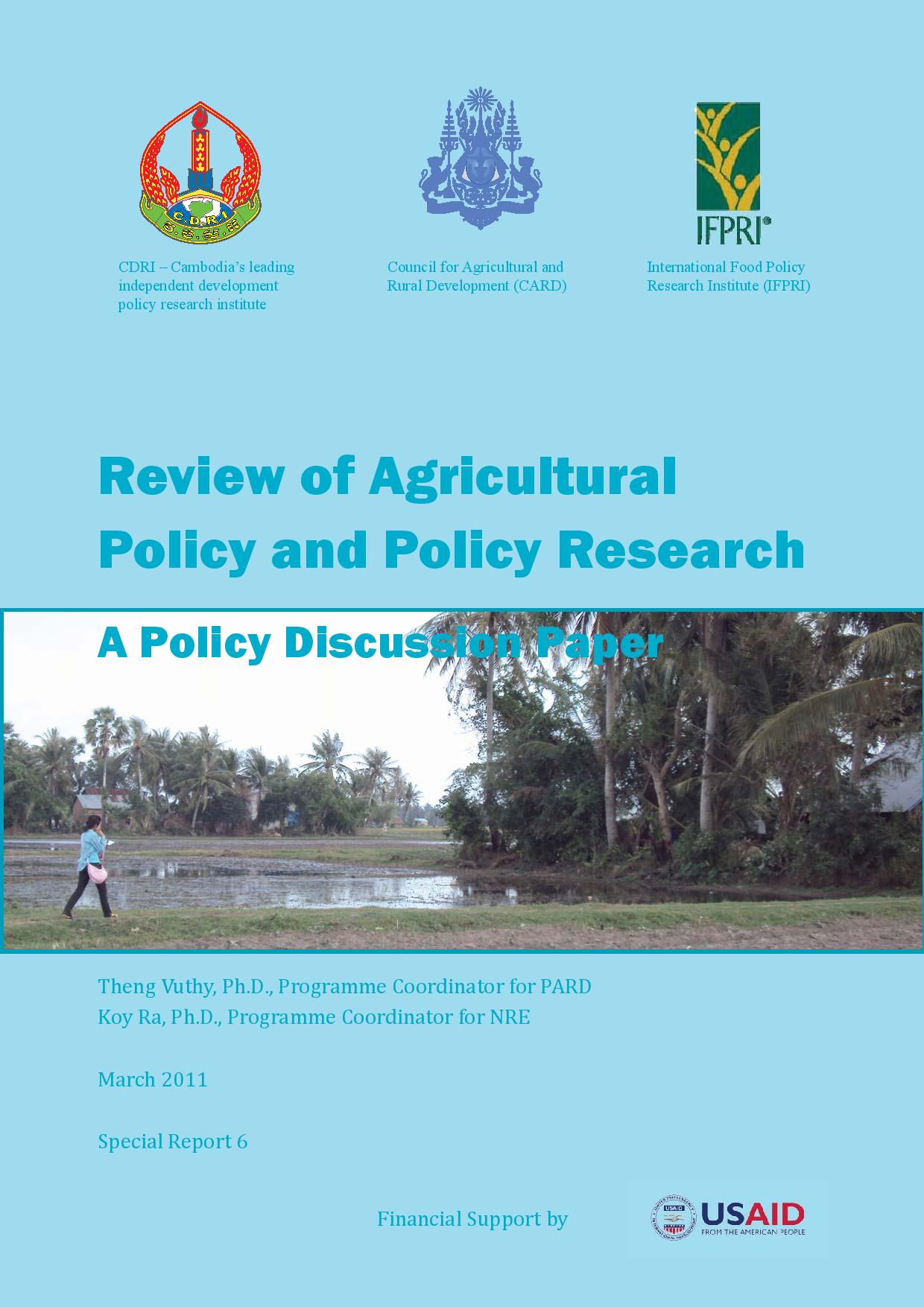
Review of Agricultural Policy and Policy Research
The Cambodian government articulates its agriculture policy in the Rectangular Strategy: “To improve agricultural productivity and diversification, thereby enabling the agriculture sector to serve as the dynamic driving force for economic growth and poverty reduction.” To this end, it developed the National Strategy for Agriculture and Water, which...
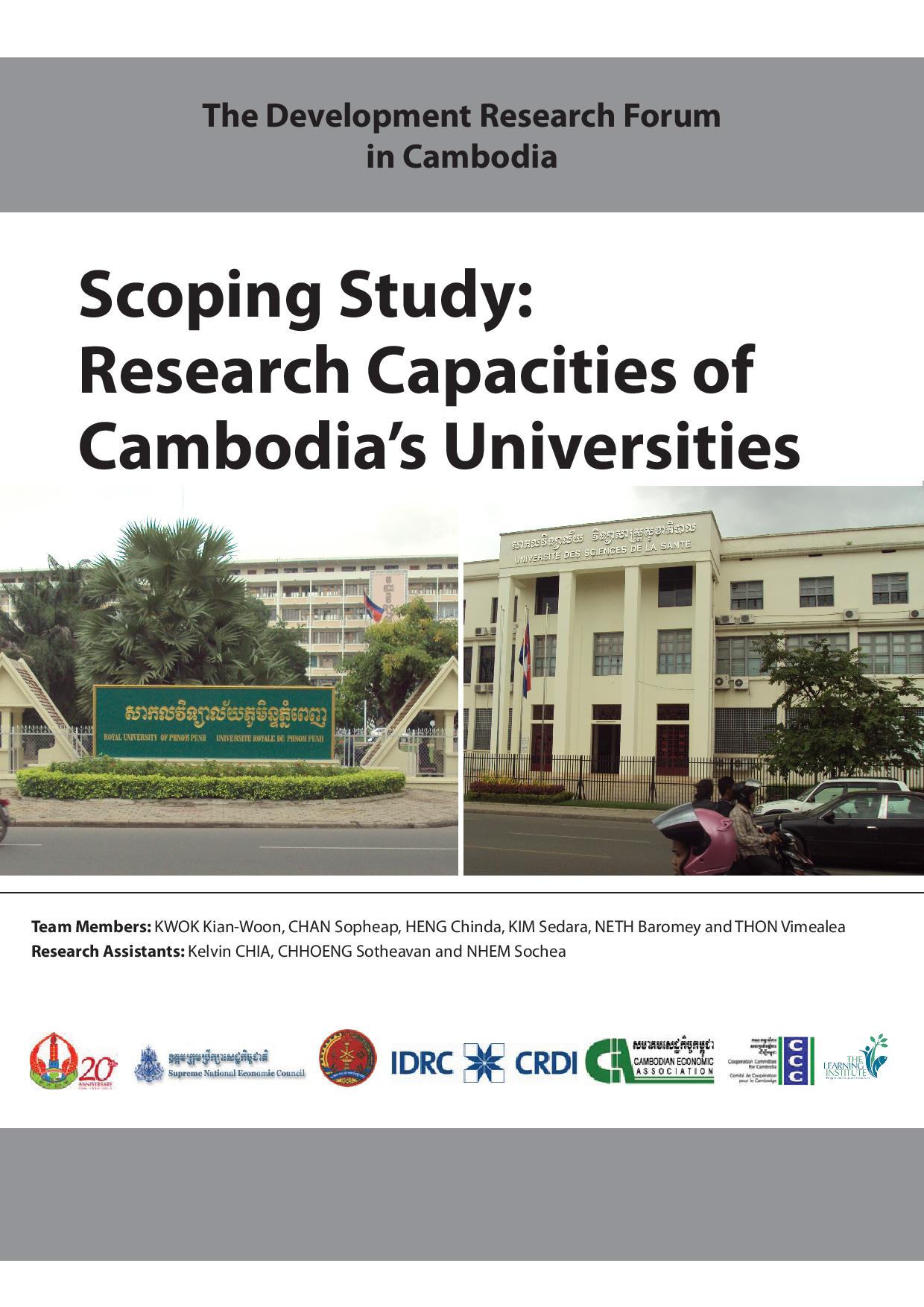
Scoping Study: Research Capacities of Cambodia’s Universities
This study tries to map the current state of research in selected Cambodian universities, with special focus on research capacities – the factors that facilitate (or hinder) research, especially applied research with a direct relevance to Cambodia’s development challenges. It seeks also to identify opportunities to seed development research through...
